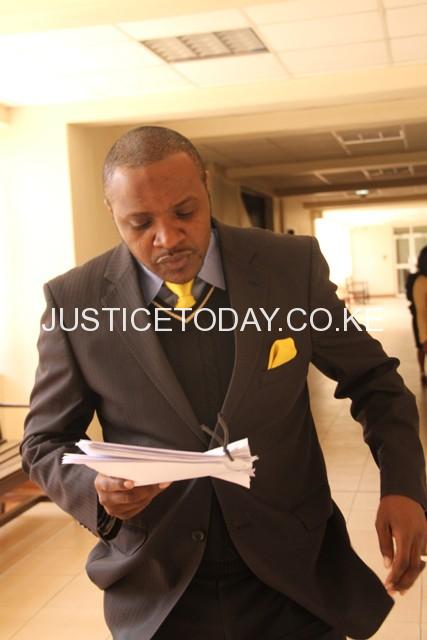Through lawyer John Swaka,they contest that the Senate Bill on religious organizations intends to deny them of freedom of conscience,religion,and expression as outlined in Articles 32 and 33of the constitution of Kenya,2010.
“My clients are seeking a declaration that clauses 10,13(2)(d),and 29(2) of the Senate Bill are unconstitutional due to their vagueness,ambiguity,and potential for varied interpretations.The principles of legal certainty requires that laws be clear and precise,” added Swaka.
The union also want a declaration that the proposed Senate Bill infringe upon Articles that protect the principles of good governance,the limitation of rights,freedom of conscience,religion,belief,and opinion,and the right to freedom of association.
“We are seeking a declaration that clauses 3 and 9(1)(2) of the senate Bill are unconstitutional as they conflict with paragraph 4 of the Fourth Schedule of the Constitution of Kenya 2010 as they outline functions between the National and county governments,”added Swaka.
The people of God are seeking orders of the court requiring the state law office to conduct thorough and meaningful consultations with all the relevant stakeholders,including religious organizations and communities,before enacting any legislation that impacts religious practices.
High Court Judge Chacha Mwita has directed that the petition be served and the Attorney General to respond within 14 days after Service.
He said further directions will be granted on October 29,2024.
They claim that the Bill violates the principles of national justice and governance.
According to them,the Religious Organizations Bill 2024 seeks to regulate various aspects of religious practice,including the registration of religious organizations,the education and qualifications of religious leaders,and the collection of tithes and offerings.
“The Bill imposes stringent requirements on religious organizations and leaders,which are inconsistent with the principles of freedom of religion and belief enshrined in the constitution,”added Swaka in the petition.
The Alliance in this recent petition says that the Bill has been introduced without adequate public participation,particularly from the key stakeholders in the religious community,in violation of Article 10(2)(a)and Article 118(1)(b) of the constitution.
They claim that the bill posses significant threats to the constitutional rights and freedoms of religious communities including regulation of faith,which are personal choices and should be governed by individual beliefs.
It is meant to discriminate against communities that practice traditional forms of worship,which have not been considered in the Bill.
“The Bill is meant to interfere with religious practices such as the collection of tithes,which are mandated by religious practice,”Says Swaka.
The church leaders say that the Senate Bill intends to unify different denominations under one regulatory framework,despite their diverse beliefs and practices.
“Imposing educational requirements on religious leaders, is contrary to religious teachings that emphasize spiritual calling over formal quotations,” they contest.
The aggrieved Church Leaders say that the state is attempting to regulate anointment,a spiritual act that cannot be legislated.
According to them,establishing an umbrella body with the power to register and regulate religious organizations,is creating a risk of arbitrary and discriminatory practices.
They argues that the state is attempting to Impose financial burdens on religious leaders who cannot afford the required education due to current economic conditions.
The Bill according to them,has been introduced without adequate public participation,particularly from key stakeholders in the religious community,in violation of Article 10(2)(a) and Article 118(1)(b) of the constitution,which mandate public participation and involvement in legislative processes.
They say that the Bill is unconstitutional,null and void and violates Article 32 of the constitution among other Articles.



